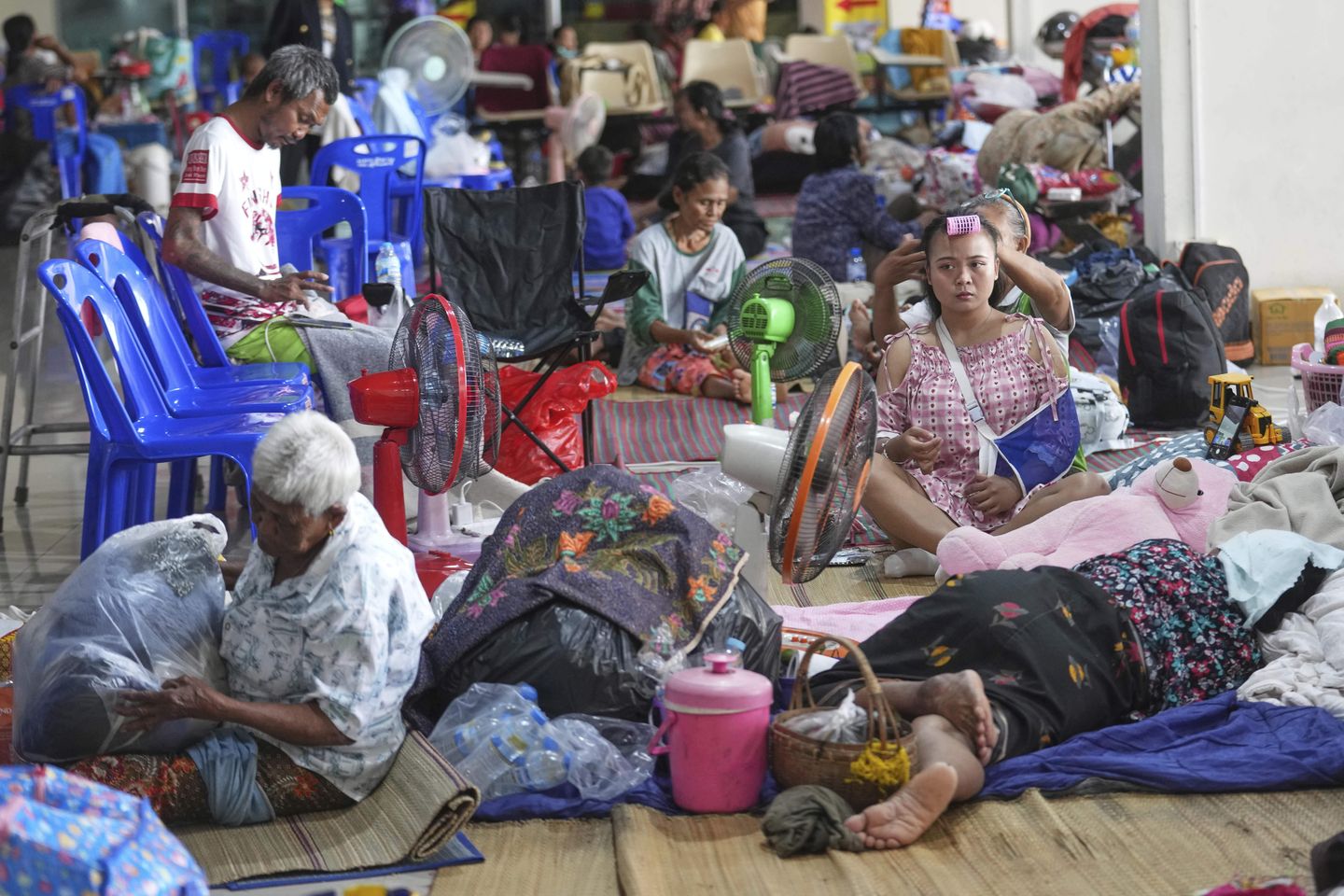
BANGKOK — Deadly cross-border artillery attacks continued for a fourth day on Sunday as Thailand’s powerful U.S.-trained military and Cambodia’s China-backed forces battled along their disputed 500-mile-long border one day ahed of ceasefire talks scheduled in Malaysia between the leaders of the Southeast Asian countries.
The peace talks come after pressure from U.S. President Trump, who called in the rivals to end a deadly border dispute that has killed at least 35 people and displaced more than 218,000.
Thailand’s Acting Prime Minister Phumtham Wechayachai and Cambodian Prime Minister Hun Manet are expected to lead the talks.
Phnom Penh wants the International Court of Justice in the Hague, Netherlands, to adjudicate their border demarcation which Bangkok refuses to adhere to because the court previously awarded Cambodia the revered Preah Vihear temple ruins near the current fighting.
“Thai forces have used artillery, drones and aircraft to launch heavy shells, bombs, and cluster munitions on Cambodian soil,” Cambodia’s Defense Ministry spokeswoman Mali Socheata said Sunday.
“Strikes to roads and infrastructure caused significant damage,” she said. “Our forces continue to fight back actively and without retreat.”
Beyond the battlefield, the fighting may be bolstering the hawkish, highly politized, Royal Thai Army’s influence which appears to be gaining some dominion over Bangkok’s fractured elected coalition government after officials indicated the military was being allowed to make decisions where and when to open fire, without effective civilian oversight.
“The soldiers will continue to do their job at full steam — so Thais do not worry — until the government has reached a clear agreement that there is no danger for the people, and to ensure we maintain the country’s interests, in order to bring the peace we want to see,” Thailand’s Acting Prime Minister Phumtham said Sunday.
The bloodshed began May 28 when a Thai soldier shot dead a Cambodian soldier, amid accusations the Cambodians were secretly digging trenches in the disputed zone’s jungle.
At least 33 people on both sides have since died from cross-border assaults — including 13 Thai civilians and eight Cambodian civilians — since a sharp escalation on July 24.
About 200,000 panicked people have fled deeper into the countryside on both sides, leaving markets and streets ghostly and abandoned.
Some weeping school children and sunburnt rice and rubber farmers crowded into their isolated villages’ hand-built bunkers dug into the hard dirt.
President Trump posted on social media on Saturday: “Many people are being killed in this War, but it very much reminds me of the Conflict between Pakistan and India, which was brought to a successful halt.”
Thailand wants “an immediate Ceasefire, and PEACE,” he wrote, linking a ceasefire to his tariff negotiations with the two financially strapped countries which depend on keeping their exports to the U.S. inexpensive without Mr. Trump’s heightened import taxes.
“I am now going to relay that message back to the Prime Minister of Cambodia. After speaking to both Parties, Ceasefire, Peace, and Prosperity seem to be a natural.”
Amid the carnage and bloodshed, both leaders pointed toward a possible ceasefire.
“We have proposed a bilateral between our [Thai and Cambodian] foreign ministers to conclude the conditions for a ceasefire, and drawing back troops and long-range weapons,” said Thailand’s Acting Prime Minister Phumtham Wechayachai after speaking with Mr. Trump.
Cambodian Prime Minister Hun Manet, a West Point graduate, posted online:
“I made it clear to Honorable President Donald Trump that Cambodia agreed with the proposal for an immediate and unconditional ceasefire between the two armed forces.”
Hours after President Trump’s phone calls to both leaders however, Cambodia’s rockets hit inside eastern Thailand before dawn, the Thai military said.










